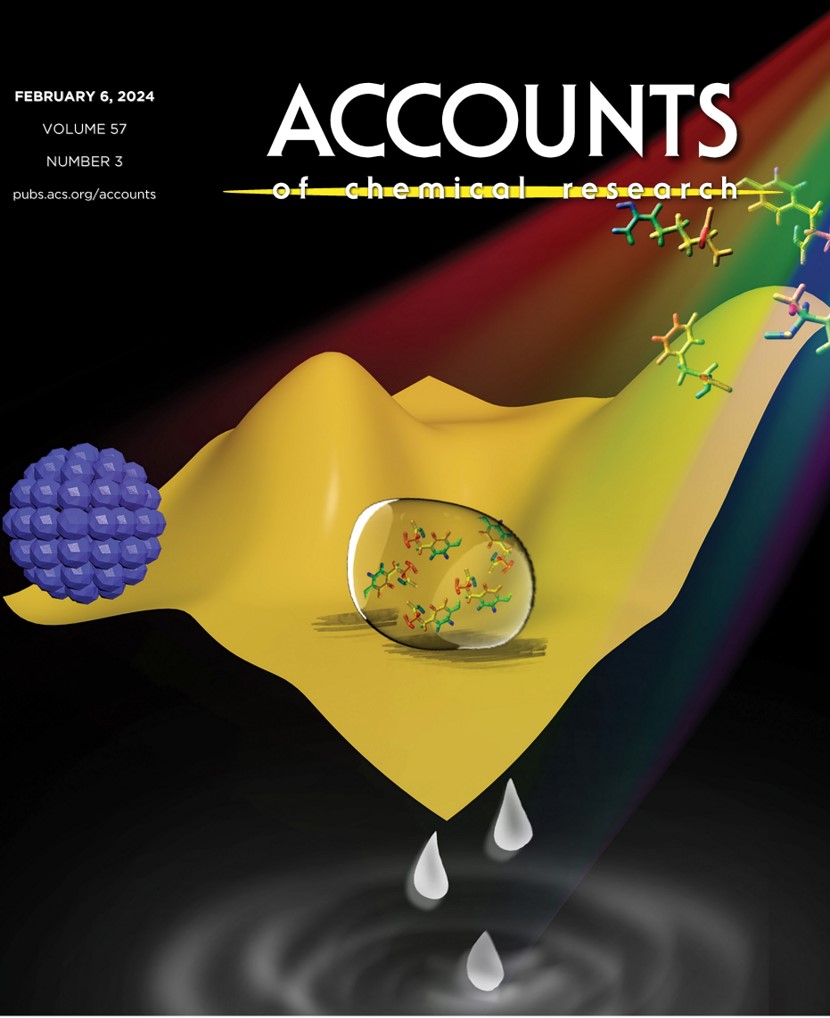Research on biomolecular self-assembly helps to understand cell function and disease pathogenesis, and also provides an effective means to construct green ecological material systems with unique functions. Recently, a team led by Prof. YAN Xuehai from the Institute of Process Engineering (IPE) of the Chinese Academy of Sciences was invited to summarize its progress in peptide self-assembly (PSA) and multi-scale process mechanisms.
The study, published in Accounts of Chemical Research (DOI: 10.1021/acs.accounts.3c00592), includes the discovery of droplet-like disordered structures, the revelation of a new mechanism for liquid-liquid phase separation (LLPS)-mediated multi-step desolvation of PSA, the development of new solid glass materials with long-range disorder, and the proposed key directions for the design and development of next-generation peptide materials.

Fig. Ordered and disordered structures formed by peptide self-assembly (Image by YAN Xuehai)
Biomolecular self-assembly in nature generates unique biological functions such as molecular recognition and signal transduction through ordered and disordered supramolecular structures. Compared with ordered structures, disordered structures usually exist in the form of thermodynamic metastable states, which are difficult to observe due to their short-lived existence.
With in-depth research, researchers have gradually discovered some disordered structures such as condensed droplets or glass. However, how to precisely control the self-assembly process, especially to ensure the stability and integrity of disordered structures, remains a major challenge in the field of PSA.
Researchers from IPE have been working on the research of biomolecular self-assembly, multi-scale process mechanisms, and biomedical applications. Based on previous works, they developed new methods to regulate the PSA process for the construction of ordered structures and their functional applications. Focusing on the transiently occurring droplet-like disordered structures, they revealed that the PSA process is a multistep desolvation process mediated by LLPS, as well as the modulation of the metastable droplets to obtain ordered structures with different morphologies and functions.
Besides, researchers discovered long-range disordered solid glass structures, and the performance advantages of degradability and processability, which provide new opportunities for the development of novel implantable devices and drug delivery systems.
Peptide self-assembled disordered structures remain to be explored, such as using computer simulation to predict disordered structures, and using in situ imaging and tracking techniques to reveal the properties of disordered structures. Ongoing research and development of PSA from ordered to disordered provides guidance for precise regulation of disordered structures and functional applications.
The study of amino acids and peptides forming coacervates through LLPS provides a method for the development of biomimetic primitive cells, which helps to understand the biological evolution process and the pathogenesis of some diseases. And the disordered glass structures are expected to be widely used in biomedical fields such as drug delivery and processable devices such as wearable devices due to their good biodegradability, processability and environmental friendliness.
Media Contact:
LI Xiangyu
Public Information Officer
Institute of Process Engineering, Chinese Academy of Sciences, Beijing 100190, P. R. China.
E-mail: xiangyuli@ipe.ac.cn
Tel: 86-10-62551358
 Search
Search




 京公网安备110402500047号
京公网安备110402500047号